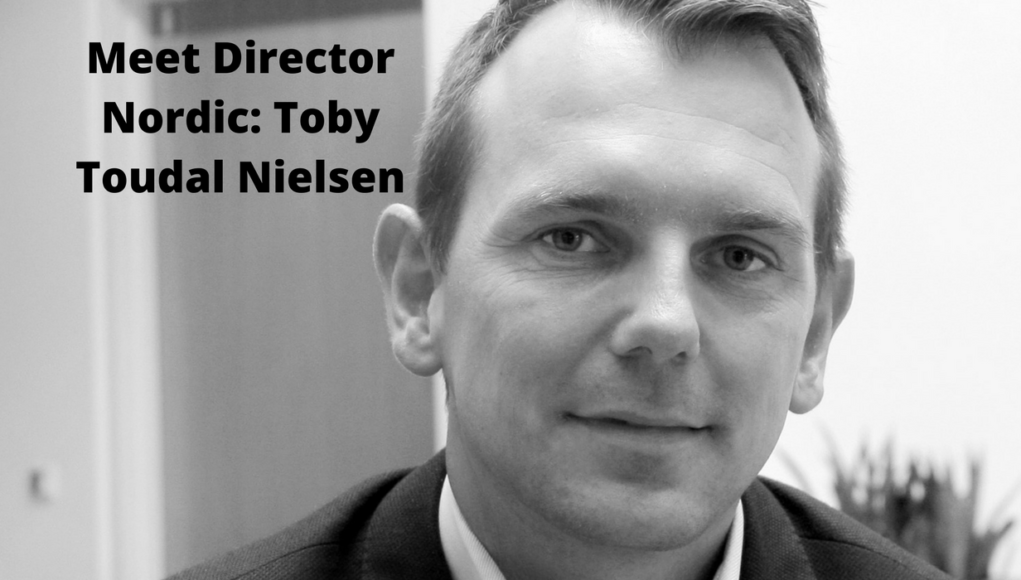The Freelance Workforce has Exploded!
The temperature is below zero. It’s Monday morning, a few minutes to 9, and I’m on my way to Café K to meet Toby Toudal Nielsen, Director Nordic at Comatch. Toby has been driving since early dawn from the border between Denmark and Germany to meet me for coffee at a small local café in Aarhus, Denmark. Comatch itself is located in Berlin, yet today, like so many other days, Toby is in Denmark to meet with companies and freelance workers alike.
Apparently, the freelance workforce has exploded – and I had not even noticed. In just the last two years, America has gained two million more freelancers, now counting 55 million freelancers. This means more than one-third of the American workforce makes a living outside the traditional workforce, as we know it. These numbers are from a recent study done by the American freelancers’ Union.
While this is interesting in itself, a staggering 79% of freelancers feel that freelancing is better than traditional employment. To top it off – 50% of freelancers say they would not return to traditional jobs for any kind of money. And why should they? According to the report, they are working fewer hours and a majority are enjoying increased earnings.
____
READ ALSO: With Management Resistance Overcome, Working from Home may be Here to Stay
_____
Clearly, these numbers are exciting as they speak directly to my vision for ManageMagazine of creating greater workplaces. If 43.4 million freelancers have increased their work satisfaction by turning to freelancing from traditional jobs, then surely there are lessons to be learned.
Luckily, I am about to learn more about how freelancers and businesses can best navigate in this new gig economy.
Meeting Toby Toudal Nielsen from Comatch
Toby Toudal Nielsen arrives and we get coffee. He carries a pleasant self-confidence, which makes conversation easy and very enjoyable. With his 20 years of experience from the Nordic marketplace – including a large Danish news publishing House, JP/Politiken, I am excited to learn about his journey. I jokingly try to headhunt him, without any luck, unfortunately. He is kind to ask about ManageMagazine, and I tell him how I feel driven by purpose.
“What drives you in your working life Toby”?
“Making the job markets more flexible. Even in Denmark, we have a long way to go. Things are moving, but at too slow a pace”.
I agree on this. Some leaders still think that desks are small assembly lines and the employee needs to sit there to be of value to the organization. But how can Comatch help the pace of things? Before we move on I ask to be enlightened on how they have set up the business.
Brief Background and Facts about Comatch
Comatch is an online marketplace that matches consultants with organizations by using a secret algorithm. Based in Berlin, Germany, they are a fast-growing organization that will soon celebrate their second year in business. The founders are prior McKinsey consultants, Dr. Christoph Hardt and Dr. Jan Schächtele, who spotted a changing  workforce – a trend worth pursuing for new fine-tuned solutions.
workforce – a trend worth pursuing for new fine-tuned solutions.
Comatch is growing rapidly, increasing its number of consultants daily and moving across borders – all with a rather young team. Toby, at 39, is the oldest member of the team; a team that is led by eleven managers so far. They opened offices in Amsterdam and Copenhagen in 2016 and are moreover working in the Middle East. As Director Nordic, Toby covers the Scandinavian countries.
The general business model enables both consultants and businesses to gain a financial advantage: consultants get good projects and organizations and consultancy houses get adaptable highly skilled professionals.
The following is a Facebook update from Comatch posted in August 2016:

Why Choose to be a Freelance Consultant – Why Choose to Hire one?
I am curious why the freelance consulting workforce is growing so quickly. What is it about freelance consulting jobs that they have become so popular? Surely, the European workforce is different as compared to the American. Yet, reports show that the gig workforce is increasing beyond just steady growth in Europe also.
_____
The Psychological Benefits of Working Less
_____
Clearly “freedom” is important to freelancers. Owning your time and deciding when, or when not to work is valuable to balancing the tasks of modern life – especially with kids.
“Yes, freedom and flexibility are important factors,” Toby explains. “The backside of the coin to working as an individual expert is living with degrees of income uncertainty. Long time lapses in between jobs can soon eat up earnings and reduce a year’s general income”.
“What we offer removes much of this uncertainty”, says Toby, “by providing projects and eliminating time spent between jobs. It is also my experience that spending time applying one’s professional skills is more attractive than finding clients or selling your skills”.
“But it goes the other way too. Client organizations become more prone to using consultants for temporary projects instead of hiring permanently when in need of short-term specific expertise. By using individual consultants or even a team of consultants for a specific project, clients can exchange one type of expert with another depending on their needs at that specific time”.
“At times it must be difficult though, to find the specific expertise you need” – I inquire?
“Well, sure. Yet as the number of consultants working for us is increasing, we rarely have that problem. Our flexibility enables us to offer jobs across borders. A Swedish consultant, for example, can take on a project in Italy if his or her skills are needed there. We also have consultants who are hiring for both shorter and longer working periods on projects in the Middle East.”
I listen with interest and see how this is a completely new way of strategizing an acquisition process. By flexible staffing, I see moreover how Comatch can offer consultancy houses the opportunity to explore new markets and sectors in a rather risk-free manner.
The flexibility of freelancing can clearly benefit the consultant as well as the hiring organization. Whether there are some flip sides to this gig workforce such as work-related stress or the like, we’ll have to return to that to find out.
Technology has clearly played an important role in the surging gig markets. Instead of knocking on doors, the Internet has made it possible to research companies and work from living room couches around the world.
The aforementioned study by the American Freelancer’s Union, confirms that 73% of freelancers find that technology has made it easier to find freelance work. Taking it one step further and using a specialized matching service for solutions that essentially help both consultants and clients, well that makes great sense.

The Matching Process
Success must depend much upon the success of the match between clients and consultants! “How do you make the matches,” I ask?
“It’s a special algorithm”, Toby explains. I look at him and ask: “like the dating sites?” We laugh. “Probably, just better” he responds.
Now the special algorithm cannot be disclosed, but I listen with interest, as he explains how they choose their consultants based just as much on social skills as professional ones. “This is the key to making a good match”, says Toby.
_____
READ ALSO: Working from home? Here are Five ways to Reduce Procrastination and be Productive
______
When I express concern that extroverts will do better than introverts in the selection process; especially in the interview situations, he assures me that they consider all factors and that for some jobs being an extrovert is not an advantage.
“Of course it is valuable for consultants to have the social skills necessary to engage in teamwork and meet with and understand the challenges of new clients,” he continues. “We use rather strict criteria that consider both hard and soft factors, and this is how we safeguard the highest quality in the match for both parties. Using highly skilled professionals is nevertheless the main ingredient, and this means that we cannot accept all applicants”.
Again I send the introverts a soothing wishful thought of good luck. Yet this is a general thought on how we tend to set up ‘entering points’ to the extrovert’s advantage, hence not about Comatch as such.
“Building our platform is much more than building a database,” Toby adds. “We are in close contact with both companies and consultants and are increasingly arranging social gatherings to bring consultants together. Freelancing can be a bit lonely if you are used to having many colleagues, yet it doesn’t have to be that way. We also see individual consultants choosing to share office space together”.
Surely there are many examples as to how freelancers are reinventing work through new collective enterprises with great success, and assumably we will see many more of these in the future.
A Couple of Thoughts on Going into Foreign Markets and what Leadership means
“It has been an interesting journey for you all at Comatch so far. You are doing well and moving into new markets; something I believe many entrepreneurs are considering”.
“What is your advice to companies, who are considering going into foreign markets, but hesitating”?
“Just do it. Simply just do it! Initially, you need to go there to meet people and connect with people in your industry; people who are doing similar things as you. Do spend the maybe €6-12.000 on a market analysis. Don’t speak to three people and make a decision about going into the market or not, based on that. That’s a mistake. Find out if there is anything good for you in the market”
“Great Leadership is when expectations are matched”
“That sounds like good advice,” I reply. “Yet, it also takes great leadership. Now, great leadership and management are core to ManageMagazine’s work to create healthy organizations. What is good leadership in your view”?
“Great leadership is when expectations are matched. Now it is, of course, a two-way street, but if one does not see his or her expectations matched, nothing good will come out of it”.
“Are you proposing that if expectations are not matched, then one should probably leave”?
“Well, I’m kind of a pragmatic guy in this respect. I believe that each and every one of us is the creator of our own successes. So yes, if you don’t like what you are seeing, then take your coat and leave”.
Our conversation ends here, as Toby is on his way further north to meet a client. I thank him for his time and the enjoyable conversation.
Alone again at the café, I order another cup of coffee and ponder the consequences of the changing marketplace. I wonder if a further drawback of the exploding gig workforce could be that consultants will burn out trying to provide more value at a lower cost than the next in order to ensure the next gig, and the next one, and the next one? Is it merely a modern way of being ‘day laborers’? I imagine the competition can become tough.
I leave the café feeling uplifted by hearing the success story of Comatch’s entrepreneurial journey and meeting Toby Toudal Nielsen. I look forward to following their activities in the years to come.
Please feel free to Pose Questions and Leave Comments
If you have comments or questions about freelance consulting, being an individual consultant, hiring consultants, or others, then do not hesitate to leave them in the comments field below. Toby and I are happy to reply to your thoughts.
Further Reading about the Freelance Workforce, Freelance Consulting, and the Gig Economy?
McKinsey Global Institute: Independent work: Choice, necessity, and the gig economy. October 2016.
Rosenblat, Alex: What Motivates Gig Economy Workers. Harvard Business Review, November 17, 2016.








